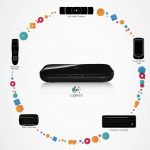Will you wait for iPhone 5?
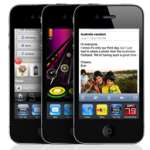
Apple-loving analyst Gene Minster claims there is "pent up demand" among Verizon subscribers for iPhone 5 -- that something like 74 percent of potential Apple smartphone buyers will wait for the newer model. Little more than half of AT&T potential iPhone buyers (or upgraders) also plan to wait. Munster also found that 64 percent of those surveyed plan to buy an iPhone as their next handset. The Piper Jaffray analyst bases this amazing discovery on a sample of 216 cell phone users. Hell, we can get more people right here and now with a poll.
Two-hundred sixteen? Geez Louise, and now his findings are making headlines on this fine August morning. I saw it first at Apple Insider. Of course, people are going to wait with rumors of iPhone 5 coming in September -- or October, as All Things Digital claims today. But to call it three-quarters of buyers based on little more than 200 people -- quick! Kick me so I don't pass out from shock.
My mother is getting a Chromebook
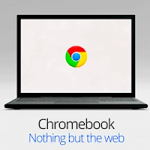
My mum turned 70 this month. It's a big birthday worthy of a special present. But, whoa, this one is so unexpected. I'm sending her a Chromebook.
Initially, she'll get the Google Cr-48 that Google sent in December for the Chrome OS pilot project. If that works out, I'll then buy her a Samsung Series 5 Chromebook. I would prefer the Acer AC700-1099, because of the lower price -- $350 versus $430 -- but the 11.6-inch screen, which appeals to me, is too small for her.
Apple, Samsung battle for smartphone supremacy
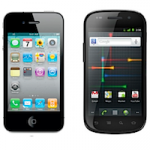
In a near photo finish, two upstarts simultaneously dethroned smartphone king Nokia as they scrambled for top spot during second quarter, globally. Apple and Samsung shipped 20.3 million and 19.2 million smartphones, respectively, according to Strategy Analytics. Nokia fell from first to third place, with 16.7 million units.
Samsung's ascension is nothing short of phenomenal, and that's remarkable considering how exceptionally Apple performed. Apple smartphone shipments rose from 8.4 million a year earlier, but Samsung even more -- from 3.1 million.
Who killed Google TV?
Mark Russinovich and Aaron Margosis introduce 'Windows Sysinternals Administrator's Reference' [video]

If you've administrated Windows for any length of time, surely Sysinternals is in your toolkit. If not, it should be. I remember first using the software to recover a locked-up Windows NT 4 PC in 1996 (was it called Winternals back then). Mark Russinovich and Bryce Cogswell founded Winternals that year, and Microsoft acquired the company 10 years later.
"Russinovich, Technical Fellow working on the managed cloud OS kernel -- you know this as the Windows Azure Fabric Controller -- is the primary author of these powerful tools", Charles Torre explains in the blog post introducing the video above. "Aaron Margosis, meanwhile, is a Microsoft Consultant and Sysinternals user with expert-level knowledge and experience using Sysinternals tools. They are an important part of his job. Aaron yearned for a book that encapsulates detailed information about all of the Sysinternals tools. Mark agreed and asked Aaron to coauthor it with him--be careful what you ask for!"
Who are these people watching Hulu on Apple or Google TV boxes?

Nielsen has a new study out looking at how Americans use Hulu and Netflix. What I found surprising -- 1 percent of the 12,000 respondents say they use Apple TV or Google TV to watch Hulu. The service isn't supported on either device, last time I checked. So who are these people?
Well, they could be bleeding edge consumers who have hacked the boxes. But I expect for the most part it's erroneous reporting. People don't always know what to answer or what they've got.
5 things you should know about Samsung Galaxy S II
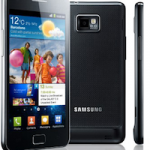
The hottest Android phone is coming to America, as soon as next month from some carriers. Should you grab one or hold out for iPhone 5 -- or something else? Here are some things you should know that otherwise might be lost in the constant babble from tech blogs and news sites obsessed about Apple's next-gen smartphone.
The Samsung Galaxy S II, or S2, announced in February, features a 4.27-inch Super AMOLED display with 800 x 480 resolution; dual-core Samsung processor; 8-megapixel rear-facing and 2-megapixel front-facing cameras; Android 2.3 (Gingerbread); 1080p video recording; Bluetooth 3.0+HS; and HSPA+ network support, among other features.
Google and Mozilla talk HTML5

This week, the two largest open-source browser developers are drawing more attention to HTML5, and what software developers and web designers can do with it. For Google, it's a delightful HTML5 showcase, while Mozilla will directly engage developers in a one-hour, live briefing. (Before, any commenters cry Apple foul, my measure of "largest" is market share -- there Chrome and Firefox lead Safari on personal computers.)
Mozilla has announced the participants, date and time for its first Ask MDN event, which will take place via Twitter.
Tough luck Symantec, McAfee, Trend Micro, IBM, CA

The security software market is undergoing dramatic changes, says, Gartner, which released data for 2010 yesterday. Twenty-ten? Why'd it take so long? Gist: The five companies controlling the market have lost dramatic combined share compared to four years earlier. Get this: Microsoft isn't given as a reason.
I call out Microsoft because its entrance into the security software market seemed sure to sap longstanding vendors, or so some claimed five years ago. The company gives away for free products like Security Essentials, and its choosing to compete with longstanding partners was controversial. But as I explained in December 2006, Microsoft needed then and still needs now to protect Windows users from hackers and bot herders.
Galaxy Tab 10.1 4G LTE cuts early XOOM buyers on the bleeding edge
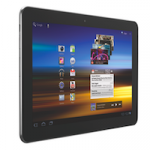
This can't possibly be the right way to endear tablet geeks to Honeycomb.
Today, Verizon announced that Samsung Galaxy Tab 10.1 goes on sale July 28th, with 4G LTE radios. That means Tab 10.1 and not Motorola XOOM will be the Android tablet big bandwidth grabber from the largest wireless carrier in the United States. XOOM shipped sooner, but with 3G radios. Early adopters have to send back their tablets for 4G LTE upgrades.
Have you bought then returned an Android phone?
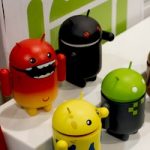
I'm asking because of a poorly reported and likely misleading post at TechCrunch.
The headline is compelling: "Android's Dirty Secret: Shipping Numbers Are Strong But Returns Are 30-40%". The sourcing is pure BS. John Biggs writes "many return rates are approaching 40 percent said a person familiar with handset sales for multiple manufacturers".
Mozilla boots to promises with browser OS proposal

Do we really need another browser-based operating system? Chrome OS isn't enough? That's the gist of Mozilla's "Boot to Gecko" -- or B2G -- proposal.
"Mozilla believes that the web can displace proprietary, single-vendor stacks for application development," according to the B2G project page. It's similar to Netscape's goal in the mid- to late-1990s -- the browser should replace the operating system as development platform. Microsoft squashed Netscape like a bug, preventing that ambition, contributing to the browser developer's demise and setting off major antitrust cases on two continents.
Is connecting to WiFi from Windows really as hard as MacDonalds claims?

OK, Windows users, here's your chance to set the record straight. If you dare. The Mac Fanclub of bloggers is gaga today over the image you see above. It's supposedly McDonalds Australia's instructions for connecting Windows PCs and Macs to WiFi. The Windows setup is a whole lot more complicated than for Macs. What should you expect from MacDonalds?
I haven't roamed on Windows for awhile, but on my last trip I don't recall connecting to encrypted or open hotspots being anywhere as difficult as these instructions indicate. It's three easy steps for the Mac, and eight fairly complicated ones for Windows XP or Vista.
Google is right to demand people use real names

Google, don't cow before riffraff demanding that you allow Google Plusers to use pseudonyms or to be anonymous. The policy of using real names is sensible and best approach long term.
While I was at San Diego Comic-Con this weekend, there was a big row about suspended Google+ accounts -- so I'm playing catch up on this one. Well, thank you, Google! I mean that without the slightest hint of sarcasm. That's a sincere thank you.
The roles we play

Today, Comic-Con 2011 wraps up here in San Diego. It's family day, where the halls fill up with locals -- following three days of celebrity panels, costume contests and other festivities. The event is all about people, whether someone comes to see a celeb, meet the authors of favorite books, games or movies or to do role play.
Many attendees have come here as someone else. For a day, or even a few, they take on another persona. They become someone else -- perhaps whom they would rather be, but most certainly not who they are. They can be heroes and even stars, for most anyone well-costumed will be repeatedly stopped for photos. Comic-Con lets them be not just someone else but someone special.
Joe's Bio
Joe Wilcox is BetaNews executive editor. His motto: Change the rules. Joe is a former CNET News staff writer, JupiterResearch senior analyst, and Ziff Davis Enterprise Microsoft Watch editor.
Ethics Statement© 1998-2025 BetaNews, Inc. All Rights Reserved. Privacy Policy - Cookie Policy.

